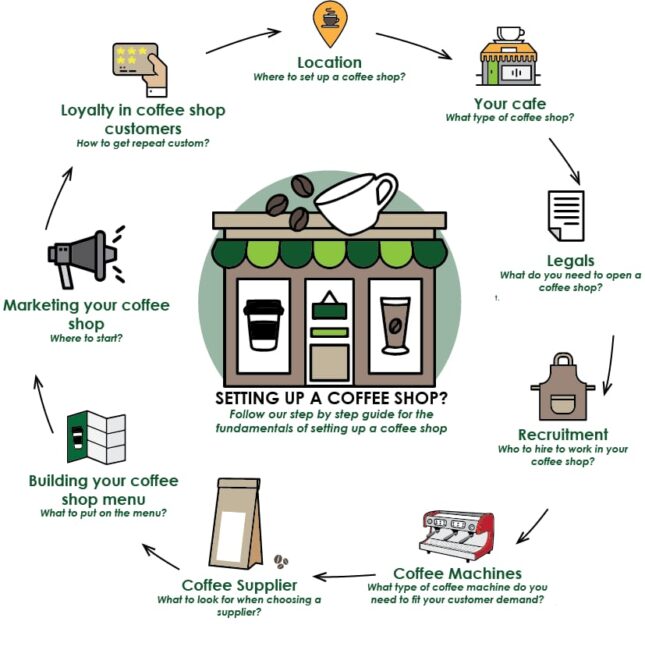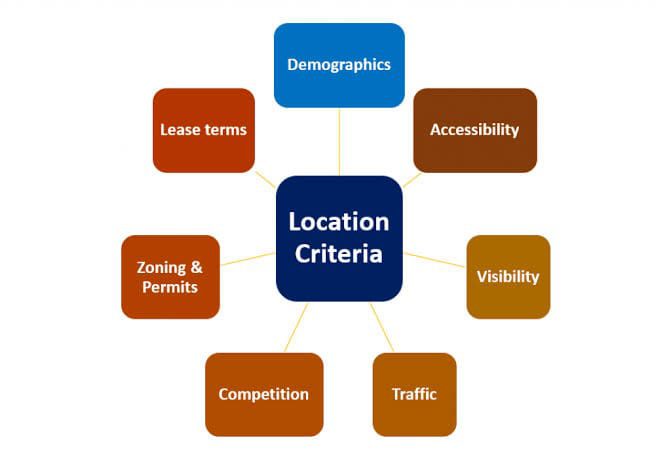In an era where coffee culture permeates every aspect of society, the idea of starting a coffee shop holds undeniable allure. But before you embark on this exciting journey, it’s essential to understand the fundamentals of what a coffee shop truly entails. At its core, a coffee shop is more than just a place to grab a cup of joe; it’s a social hub, a communal gathering spot, and a sanctuary for caffeine aficionados.
To thrive in the competitive landscape of the coffee industry, aspiring coffee shop owners must pay attention to several key elements. These include the quality of the coffee and other beverages served, the ambiance and design of the space, the level of customer service provided, and the overall branding and marketing strategy.
Creating a unique value proposition that sets your coffee shop apart from the competition is essential for attracting and retaining loyal customers. Before diving headfirst into the world of coffee shop ownership, it’s crucial to conduct thorough market research and carefully consider the location of your establishment.
Analyze local demographics, competitor offerings, and consumer preferences to identify untapped opportunities and niche markets. When selecting a location for your coffee shop, factors such as foot traffic, accessibility, and proximity to complementary businesses (such as offices, schools, or shopping centers) should be taken into account.
A well-crafted business plan serves as the roadmap for your coffee shop venture, outlining your goals, strategies, and financial projections. Your business plan should include details such as your target market, pricing strategy, menu offerings, staffing requirements, and marketing plan.
Additionally, it’s essential to establish a realistic budget and secure financing to cover startup costs, equipment purchases, and operational expenses. The quality of your coffee and beverages will play a significant role in attracting and retaining customers.
Partnering with reputable coffee suppliers and roasters ensures that you have access to high-quality beans and ingredients that meet your standards. When selecting equipment for your coffee shop, invest in reliable espresso machines, grinders, brewers, and other tools that will enable you to consistently produce delicious drinks with precision and efficiency.
The ambiance and design of your coffee shop play a crucial role in shaping the overall customer experience. Consider factors such as lighting, seating arrangements, decor, and music to create a welcoming and comfortable environment that encourages customers to linger and return.
Whether you opt for a cozy neighborhood cafe vibe or a sleek and modern aesthetic, ensure that your space reflects your brand identity and resonates with your target audience. Your staff are the face of your coffee shop and play a vital role in delivering exceptional customer service.
Hire friendly and knowledgeable baristas who are passionate about coffee and committed to providing a memorable experience for every customer. Invest in training programs to ensure that your team is well-versed in coffee brewing techniques, customer service best practices, and food safety protocols.
Effective marketing and promotion are essential for attracting customers and generating buzz around your coffee shop. Leverage social media platforms, such as Instagram, Facebook, and Twitter, to showcase your menu offerings, share behind-the-scenes glimpses, and engage with your audience.
Consider hosting events, offering promotions, or partnering with local businesses to increase visibility and attract new customers. Additionally, create a visually appealing website and utilize online ordering and delivery services to cater to customers’ convenience.
The coffee industry is constantly evolving, with new trends and preferences emerging regularly. Stay attuned to changes in consumer behavior, dietary preferences, and industry innovations to ensure that your coffee shop remains relevant and competitive. Experiment with seasonal menu offerings, specialty drinks, and collaborative partnerships to keep customers engaged and excited about your brand.
Read Also: How to Calculate Net Income: A Step-By-Step Guide
Why Start a Coffee Shop?

In a world where coffee is more than just a beverage but a cultural phenomenon, the idea of starting a coffee shop holds undeniable appeal. Beyond the aromatic allure of freshly brewed coffee lies a myriad of reasons why individuals are drawn to the prospect of venturing into the coffee business and these reasons are:
1. Cultural Reverence for Coffee: Coffee holds a special place in the hearts and minds of people around the globe. Beyond its role as a caffeinated pick-me-up, coffee embodies a rich tapestry of cultural traditions, social rituals, and sensory experiences. From the comforting aroma of freshly ground beans to the ritual of sipping a perfectly crafted espresso, coffee evokes a sense of comfort, community, and connection that transcends borders and generations.
2. Entrepreneurial Freedom and Creativity: For aspiring entrepreneurs, the prospect of starting a coffee shop offers unparalleled freedom and creativity. Unlike traditional corporate careers, owning and operating a coffee shop allows individuals to chart their own course, express their creativity, and shape their destiny.
From curating the menu and designing the space to crafting the brand identity and fostering a unique customer experience, coffee shop ownership is a canvas for entrepreneurial visionaries to bring their dreams to life.
3. Community Building and Social Connection: Coffee shops serve as more than just places to grab a cup of joe; they are vibrant hubs of social activity and community engagement. By providing a welcoming and inclusive environment, coffee shops foster connections between people from all walks of life, forging bonds that transcend age, ethnicity, and social status. Whether it’s catching up with friends, meeting a date, or networking with colleagues, coffee shops serve as catalysts for meaningful interactions and shared experiences.
4. Culinary Creativity and Artisanal Craftsmanship: For coffee enthusiasts with a passion for culinary creativity and artisanal craftsmanship, owning a coffee shop offers the perfect outlet for honing their skills and showcasing their talents. From experimenting with unique brewing methods and flavor profiles to sourcing specialty beans and crafting signature drinks, coffee shop owners have the opportunity to push the boundaries of traditional coffee culture and delight customers with innovative offerings.
5. Contribution to Local Economy and Community Development: Coffee shops play a vital role in contributing to the local economy and fostering community development. By sourcing ingredients locally, hiring staff from the community, and supporting neighboring businesses, coffee shops serve as engines of economic growth and vitality. Moreover, coffee shops often serve as catalysts for neighborhood revitalization, attracting foot traffic, stimulating retail activity, and enhancing the overall quality of life in the area.
6. Flexible Business Models and Scalability: One of the advantages of starting a coffee shop is the flexibility of business models and scalability options available. Whether it’s a cozy neighborhood cafe, a bustling downtown espresso bar, or a mobile coffee truck, coffee shop owners can tailor their business model to suit their preferences, resources, and target market. Moreover, successful coffee shop concepts can be replicated and scaled up to multiple locations, allowing entrepreneurs to expand their reach and maximize their impact.
7. Health and Wellness Benefits: In addition to its cultural and social appeal, coffee also offers a range of health and wellness benefits that resonate with health-conscious consumers. From its antioxidant properties and potential cognitive benefits to its role in promoting socialization and mental well-being, coffee has emerged as a staple of modern healthy living. By offering high-quality, ethically sourced coffee and promoting a balanced lifestyle, coffee shop owners can cater to the growing demand for health-conscious choices.
8. Legacy Building and Personal Fulfillment: For many individuals, the decision to start a coffee shop is driven by a desire to leave a lasting legacy and make a meaningful impact on the world. Whether it’s carrying on a family tradition, realizing a lifelong dream, or leaving a mark on the local community, coffee shop ownership offers a platform for personal growth, fulfillment, and legacy building. By creating a welcoming space where people can gather, connect, and create memories, coffee shop owners have the opportunity to leave a lasting imprint on the fabric of society.
Read Also: The Benefits of Investing in Capital Goods
How to Set Up Your Coffee Shop

1. Define Your Vision and Concept: The first step in setting up your coffee shop is to define your vision and concept. Consider what sets your coffee shop apart from others and what kind of atmosphere you want to create. Are you aiming for a cozy neighborhood cafe, a sleek and modern espresso bar, or a rustic-chic bistro? Clarifying your vision will guide all subsequent decisions, from menu offerings and interior design to branding and marketing strategies.
2. Conduct Market Research: Before diving into the nitty-gritty details, it’s crucial to conduct thorough market research to understand your target audience, local competition, and industry trends. Identify the demographics of your potential customers, assess their preferences and spending habits, and evaluate the strengths and weaknesses of existing coffee shops in your area. This information will help you identify gaps in the market and tailor your offerings to meet the needs of your target audience.
3. Secure Financing: Once you have a clear vision and understanding of the market, it’s time to secure financing for your coffee shop venture. Create a detailed business plan outlining your startup costs, projected expenses, revenue projections, and financing needs. Explore funding options such as personal savings, loans, investors, or crowdfunding platforms to secure the necessary capital to launch your coffee shop.
4. Find the Perfect Location: The location of your coffee shop can make or break your business, so take the time to find the perfect spot. Consider factors such as foot traffic, visibility, parking availability, and proximity to complementary businesses (such as offices, schools, or shopping centers). Evaluate lease terms, rental rates, and zoning regulations to ensure that the location aligns with your budget and long-term goals.
5. Design Your Space: The design of your coffee shop plays a crucial role in shaping the overall customer experience. Create a welcoming and inviting atmosphere that reflects your brand identity and resonates with your target audience. Consider factors such as interior layout, decor, lighting, seating arrangements, and music to create a comfortable and aesthetically pleasing environment where customers can relax and enjoy their coffee.
6. Source Equipment and Supplies: Invest in high-quality equipment and supplies to ensure that your coffee shop operates smoothly and efficiently. Purchase essential items such as espresso machines, grinders, brewers, refrigerators, and POS systems from reputable suppliers. Choose durable and reliable equipment that can withstand the demands of daily use and provide consistent results.
7. Develop Your Menu: Craft a menu that showcases your unique offerings and caters to the preferences of your target audience. Experiment with different coffee beans, brewing methods, and flavor profiles to create signature drinks that set your coffee shop apart. In addition to coffee, consider offering a selection of teas, pastries, sandwiches, and other snacks to appeal to a wider range of customers.
8. Hire and Train Staff: Your staff are the face of your coffee shop and play a crucial role in delivering exceptional customer service. Hire friendly and knowledgeable baristas who are passionate about coffee and committed to providing a memorable experience for every customer. Invest in training programs to ensure that your team is well-versed in coffee brewing techniques, customer service best practices, and food safety protocols.
9. Create a Marketing Plan: Develop a comprehensive marketing plan to promote your coffee shop and attract customers. Utilize a mix of online and offline marketing tactics, including social media, email newsletters, local advertising, and community events. Engage with your target audience, build relationships with local influencers, and offer promotions and incentives to incentivize visits to your coffee shop.
10. Grand Opening and Beyond: Finally, it’s time to celebrate the grand opening of your coffee shop and introduce it to the community. Host a launch event, offer special promotions, and invite friends, family, and local dignitaries to celebrate this milestone. Beyond the grand opening, focus on delivering exceptional customer experiences, soliciting feedback, and continuously refining your offerings to ensure the long-term success of your coffee shop.
Factors to Consider When Choosing a Location For Your Coffee Shop

1. Foot Traffic and Visibility: The cornerstone of a successful coffee shop location is high foot traffic and visibility. Seek out bustling street corners, busy shopping districts, or commercial areas with constant pedestrian flow. A visible storefront with ample signage will capture the attention of passersby, enticing them to step inside and indulge in your offerings.
2. Demographics: Understanding the demographics of the area is paramount to tailoring your coffee shop to the needs and preferences of your target market. Analyze factors such as age, income level, lifestyle choices, and cultural diversity to ensure alignment with your business vision. Choose a location that resonates with your ideal customer profile and fosters a sense of community connection.
3. Competition: While a certain level of competition can indicate a thriving market, it’s essential to assess the competitive landscape carefully. Evaluate existing coffee shops and cafes in the vicinity, considering their offerings, pricing, and brand positioning. Look for opportunities to differentiate your coffee shop through unique offerings, ambiance, or customer experience to carve out a distinctive niche in the market.
4. Accessibility and Parking: Convenience is key when it comes to attracting customers to your coffee shop. Opt for a location that is easily accessible by foot, car, or public transportation. Ensure ample parking options nearby, whether through street parking, parking lots, or designated spaces, to accommodate customers’ needs and encourage repeat visits.
5. Local Amenities and Attractions: Consider the surrounding amenities and attractions that may draw people to the area. Look for locations near offices, schools, universities, parks, or tourist destinations, as these areas tend to have higher foot traffic and a built-in customer base. Proximity to complementary businesses, such as bookstores, boutiques, or fitness centers, can also enhance the appeal of your coffee shop and foster cross-promotional opportunities.
6. Zoning Regulations and Permits: Before finalizing a location, familiarize yourself with local zoning regulations and obtain the necessary permits and licenses for operating a coffee shop. Ensure compliance with zoning laws regarding commercial use, signage, outdoor seating, and health and safety standards. Consult with local authorities or a legal advisor to navigate regulatory requirements and avoid potential pitfalls.
7. Cost and Rent: Balancing affordability with location quality is crucial when considering rental or lease costs for your coffee shop. Evaluate the overall cost of occupancy, including rent, utilities, taxes, and maintenance fees, in relation to your budget and revenue projections. Negotiate lease terms that are favorable and allow for flexibility as your business grows and evolves.
8. Community Engagement and Culture: Assess the community dynamics and cultural fabric of the neighborhood to gauge its receptiveness to your coffee shop concept. Engage with local residents, business owners, and community organizations to build relationships, gather feedback, and integrate your coffee shop into the fabric of the community. Consider hosting events, partnering with local artisans or musicians, and supporting neighborhood initiatives to foster a sense of belonging and loyalty among customers.
9. Future Growth and Expansion Potential: Think long-term when selecting a location for your coffee shop and consider its potential for future growth and expansion. Evaluate the scalability of the location, nearby development projects, and emerging trends that may impact the area’s trajectory. Plan strategically to capitalize on growth opportunities, whether through additional locations, expanded offerings, or new market segments.
In conclusion, Selecting the ideal location for your coffee shop is a pivotal decision that can significantly impact its success. Beyond the aroma of freshly brewed coffee and cozy ambiance, the location plays a crucial role in attracting customers, driving foot traffic, and establishing your coffee shop as a community staple. Choosing the perfect location for your coffee shop is a multifaceted endeavor that requires careful consideration of numerous factors.
By assessing foot traffic, demographics, competition, accessibility, amenities, zoning regulations, costs, community engagement, and growth potential, you can identify the ideal perch for your coffee shop venture. Embrace the opportunity to create a vibrant and thriving coffee destination that captivates customers, fosters community connection, and leaves a lasting impression on the local landscape.
Read Also: Places to Go When Bored






